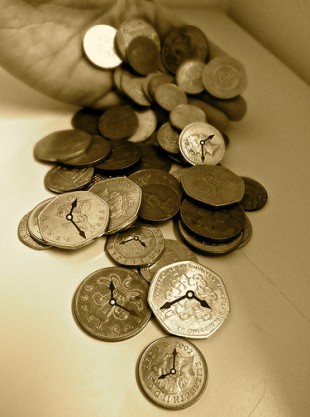In an effort to fill the gaps left by our financial institutions, many are searching for local alternatives to national currencies. Time banks are one option that promotes community self-reliance while withstanding the whims of a boom and bust economy.
Time banks are now operating in over 300 communities in 22 countries, providing individuals with the opportunity to exchange services without currency. Similar in many ways to the barter system, time bankers spend an hour doing something for someone in their community and in return are granted one hour of credit to be redeemed at a later time. The services given and received include anything from cooking and transportation for the elderly, to tutoring children, to health care and psychiatric services. The primary difference between time banks and traditional bartering systems is that every hour of work in a time bank is equal.
Since Portland, Maine’s time bank program started in 1997, its members have exchanged over 150,000 hours of services, including 25,000 hours of health care. Time banks have the potential to provide underprivileged individuals and families with a means for receiving services that they might not be able to afford with traditional currencies.
Similar examples of alternative currency programs include Ithaca HOURS, a local tender accepted by over 900 individuals and businesses within a 20-mile radius of Ithaca, New York. The goal is to create a sustainable economy by encouraging individuals to buy locally made crafts and food. Because one Ithaca HOUR is valued at $10, $2.75 more than the state’s minimum hourly wage, individuals have an incentive to serve their community and to shop within it.
These programs are also part of a social movement to build and strengthen local communities. TimeBanks USA writes that “the trust, sharing and mutual support of our social networks are essential elements of healthy communities and healthy individuals.” Time banks provide neighbors the opportunity to build relationships that matter, promoting an investment in the common good. Creating sustainable communities requires a shift in focus from financial capital to social capital, and time banks provide an arena for realizing that change.
This article was originally published in the January 2012 Solutions Journal.








